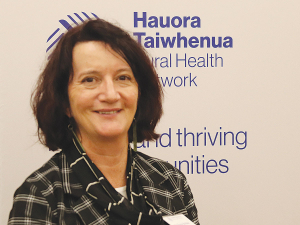OPINION: Just as the entire country’s health system moved into a new structure last week, a fresh Rural Health Network was also launched.
Hauora Taiwhenua brings into one organisation nine separate groups who work in the rural health sector – including those working as Rural GPs, nurses, midwives, hospitals, researchers, community organisations and Maori.
According to the entity’s interim chair Dr Fiona Bolden, the main benefit of the new organisation is that it brings all the representatives of rural health and wellbeing into one place. She says, in doing so, it creates a very powerful voice in terms of rural health advocacy.
As Bolden says, this is a crucial time for the NZ health service as the new reforms take effect. NZ’s health service – especially rural – is suffering from underfunding and a lack of workforce planning.
One of the problems with the rural health system is what is known as the ‘post code lottery’, where health services are delivered on artificial boundaries and not necessarily relevant communities of interest.
Dr Bryan Betty, medical director of the College of General Practitioners, rightly points out that it’s important for patients with complex health issues and/or living in deprived areas to have quick access to frontline medical services – which is a real issue for many rural folk.
He hopes that the new structure of the country’s health services will bring an end to the ‘post code lottery’ that everyone talks about. That is something we all, particularly those in rural regions, are hopeful of.
However, as rural people are only too aware, postcodes and mail deliveries can sometimes be slow and unreliable. But when it comes to the health of rural communities this cannot be allowed to happen.
As Brian Betty correctly says, it’s an equity issue to ensure that we are giving equal health outcomes to all people in NZ and that includes rural communities.
It is a matter of life and death that these changes to NZ’s health system actually deliver!











